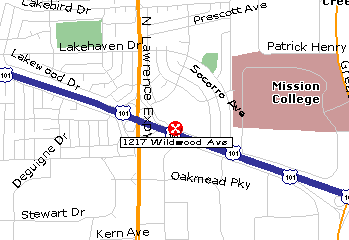|
|
|
 | ||
|
| ||
 Thursday, April 26, 2007
Thursday, April 26, 2007
|
|
Register & Prepay for lunch ($15) in one step from your PayPal account or Credit Card! |
PLEASE RESERVE IN ADVANCE --

In this study, a product-specific technical consortium was initiated by voluntary participants, including OEM, Chip Supplier, Soldering Material and Fab Supplier, EMS, and Metallurgical/Failure Analytical Lab to study FCBGA thermal and mechanical reliability. A 65nm FCBGA with electrical daisy chain and thermal die was included in a Test Vehicle (TV) and Box Emulator (BE). To facilitate and streamline the design development cycle, a closed loop Design for Reliability model was used.
Finite Element Analysis was performed on a test board with almost the same probing pinout to see the strain response on the PCB by correlating to gage measurement. Then the strain level of the solder joint was benchmarked to the yield strength. The reliability of FCBGA-solder-PCB pad interconnect system will be real-time monitored during Accelerated Thermal Cycling (ATC) in order to assess the interconnect fatigue life and failure mode. In order to derive the mechanical residual stress correlation to the reliability scale, a four-point bending test fixture will be used to apply levels of stress before ATC is conducted on the stressed interconnect system. Finite Element Modeling will be performed to study the strain level in the solder interconnect to provide insights for fatigue life estimation. Extensive metallurgical analyses will be conducted at time zero as well as during the ATC to reveal solder crack growth, intermetallic compound evolution and interfacial grain structure.
The thermal interconnect management system, Process Unit-Thermal Interface Material-Heatsink-Fan, contained in the Box Emulator, is used to derive the die junction temperature (Tj) and thermal resistance (Rth) at various interconnect interfaces. Thermal degradation of the system, particularly the Thermal Interface Material (TIM), is also assessed by thermally stressing the system in ATC then plotting the Tj and Rth variation in time series.
Paul is currently working in the Reliability Engineering Group in XBOX at Microsoft as Sr. Staff Reliability Engineer. He is responsible for hardware quality and reliability studies from electronic package, device, solder interconnection, to system levels.
|
SCV Chapter
Home Page |
How to Join IEEE |
Contact our Chapter Chair |
| CPMT Society
Home Page |
IEEE Home Page |
Email
to Webmaster |
Last updated on